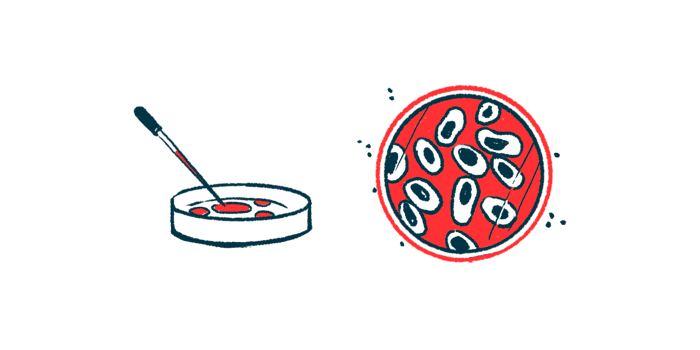Worm study links gut bacteria to alpha-synuclein clumping
Researchers ponder potential benefits of screening for Desulfovibrio bacteria

Bacteria in the group Desulfovibrio may promote the disease-driving clumping of alpha-synuclein protein in Parkinson’s disease, a new study done in nematode worms suggests.
“Our findings make it possible to screen for the carriers of these harmful Desulfovibrio bacteria. Consequently, they can be targeted by measures to remove these strains from the gut, potentially alleviating and slowing the symptoms of patients with Parkinson’s disease,” Per Saris, co-author of the study at the University of Helsinki, said in a press release.
The study, “Desulfovibrio bacteria enhance alpha-synuclein aggregation in a Caenorhabditis elegans model of Parkinson’s disease,” was published in Frontiers in Cellular and Infection Microbiology.
Parkinson’s is characterized by the death and dysfunction of dopamine-making cells in the brain, but the biological causes of the disease remain poorly understood. At a molecular level, Parkinson’s is marked by aggregates, or clumps, of the protein alpha-synuclein in brain cells. These aggregates are toxic to cells, and are thought to play a central role in driving disease progression.
An emerging body of research has suggested that the gut microbiome — the billions of bacteria that make their home in the human digestive tract — may play a role in the development of Parkinson’s. Previous studies have suggested that, in Parkinson’s patients, the gut microbiome tends to include more Desulfovibrio, a group of bacteria known to have pro-inflammatory effects in the body.
Although a link between Desulfovibrio and Parkinson’s has been reported, it hasn’t been clear how these bacteria might promote Parkinson’s. In this study, a team led by scientists in Finland investigated whether this type of bacteria might affect alpha-synuclein clumping.
Spouses invited
The team collected fecal samples from 20 volunteers — 10 people with Parkinson’s and their spouses who did not have the disease. Spouses are used commonly as controls in microbiome research because they usually live in the same place, which may help minimize variations in bacterial communities due to differences in an individual’s environment.
Fecal samples from all 10 Parkinson’s patients, and eight of the spouses, were positive for Desulfovibrio bacteria, with the most common specific species being D. fairfieldensis in both groups.
In laboratory studies, the researchers isolated three strains of Desulfovibrio bacteria from the Parkinson’s patients, and another three strains from the spouses. Then, these bacteria were used to feed nematode worms (Caenorhabditis elegans, a common laboratory model) that were engineered to express high levels of human alpha-synuclein protein. Other worms were fed on two strains of E. coli bacteria as a control: one strain that has been shown to facilitate alpha synuclein aggregation in animal models, and another strain that does not have that capacity.
Results showed that worms fed Desulfovibrio bacteria from Parkinson’s patients had significantly more and larger alpha-synuclein aggregates compared to either worms fed E. coli, or worms fed Desulfovibrio from non-Parkinson’s spouses. The three strains of bacteria from Parkinson’s patients all showed a comparable effect on the number of aggregates, though two of the strains resulted in significantly larger clumps compared to the third strain.
“Taking into account that aggregation of alpha-[synuclein] is a hallmark of [Parkinson’s], the ability of [Desulfovibrio] bacteria to induce alpha-[synuclein] aggregation in large numbers and sizes, as demonstrated in the present study, provides further evidence for the pathogenic [disease-causing] role of [Desulfovibrio] bacteria” in Parkinson’s, the researchers wrote.
Analyses further showed that, after four days of feeding, worms fed Desulfovibrio bacteria from Parkinson’s patients had significantly worse survival outcomes, compared to worms fed E. coli bacteria that aren’t associated with Parkinson’s.
More studies needed
The researchers speculated that the inflammation-promoting properties of Desulfovibrio might play a role in promoting alpha-synuclein aggregation, but they stressed that further study is needed to understand the mechanisms underlying this phenomenon.
“The results indicate that [Desulfovibrio] strains have different properties and those bearing particular pathogenic traits play a potential role in [Parkinson’s] pathogenesis by inducing or accelerating alpha-[synuclein] aggregation. Future studies are necessary to further evaluate the role of these traits in disease development,” they concluded.







